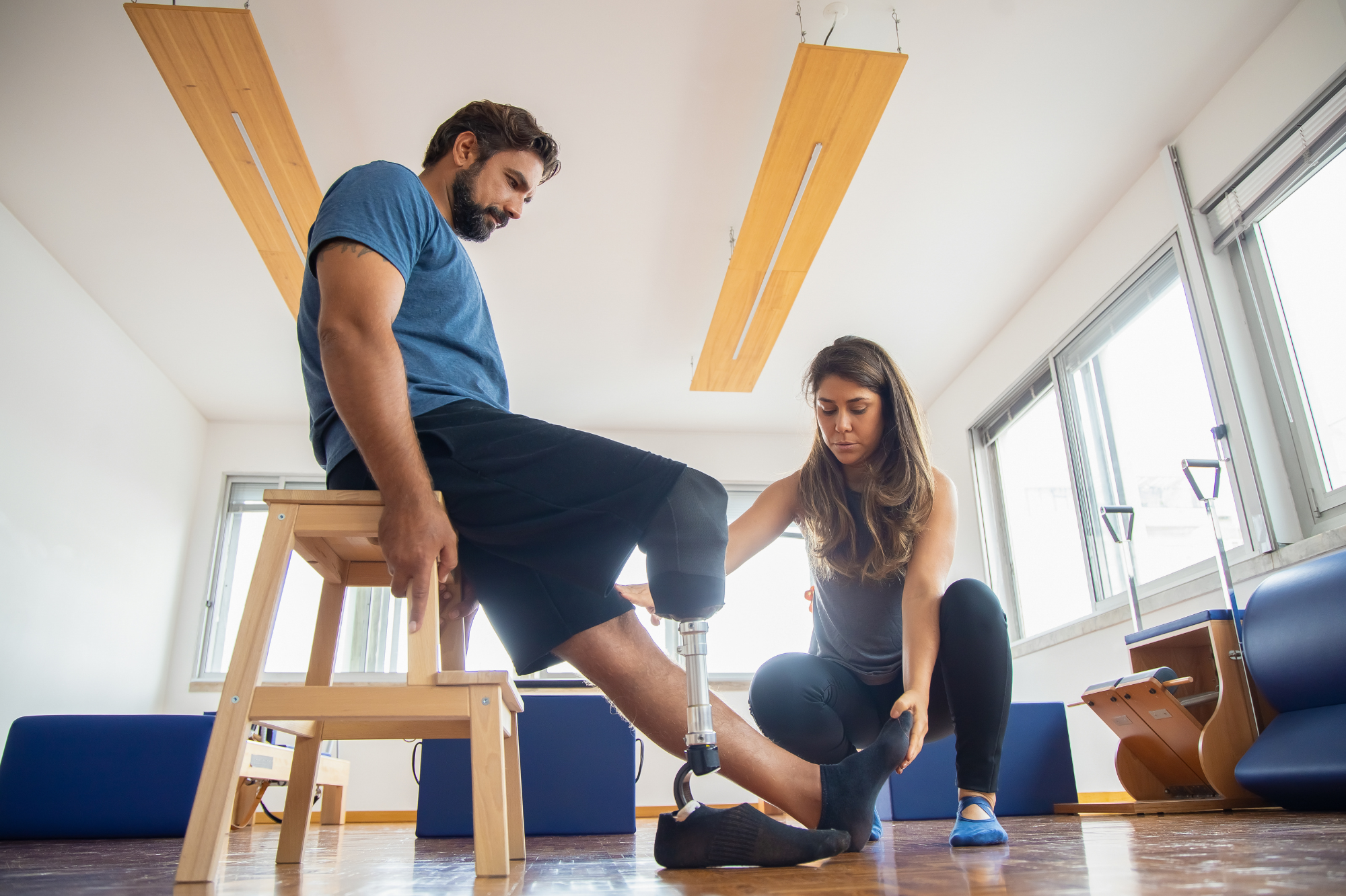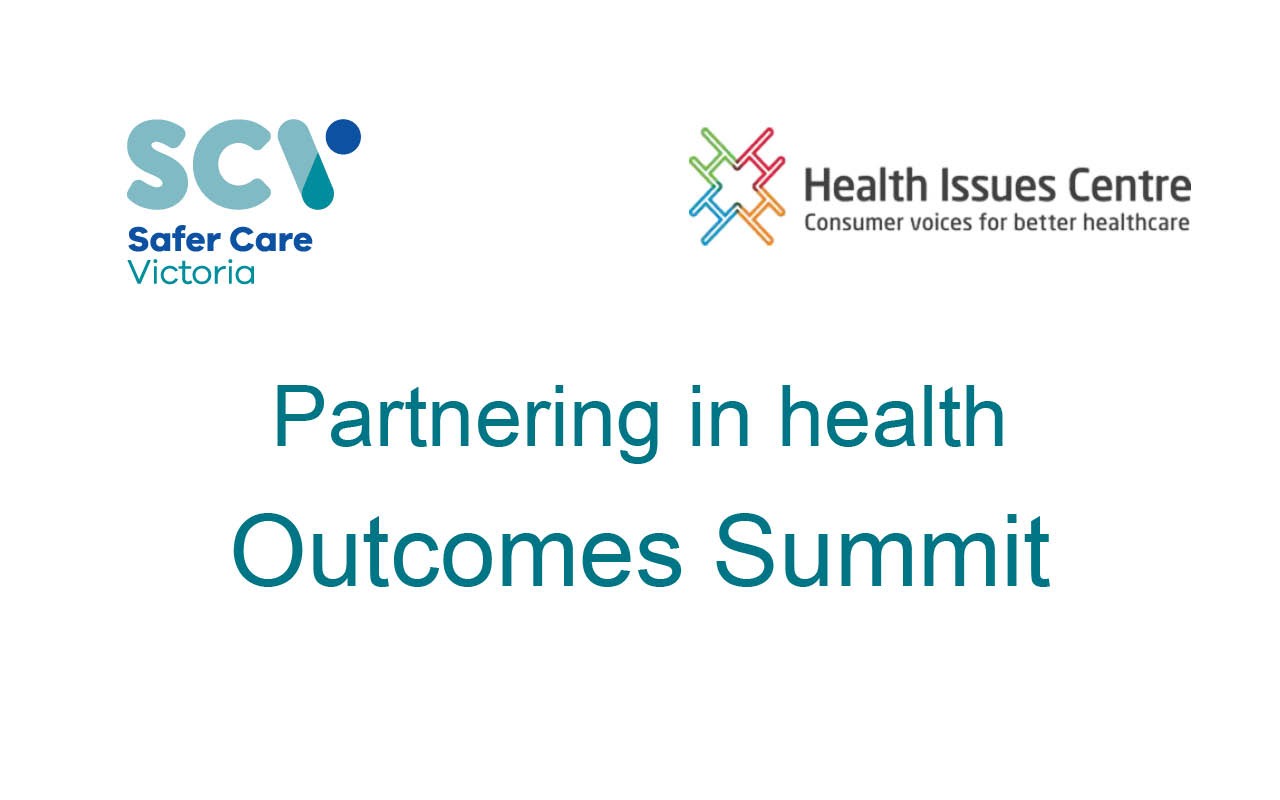This is a guest article, written by the Victorian Allied Health Assistant Workforce Project team.
There may have been a time in your life when you went to see an Allied Health Professional. This includes people like; Physiotherapists, Dietitians, Speech Pathologists, Podiatrists, Occupational Therapists or Social Workers to name a few. Sometimes, depending on where you live or what kind of services you require, there can be a shortage in the number of qualified Allied Health Professionals available. Unfortunately, this could mean that you wait longer to be seen and may not be able to be seen as often as you would like or need.
One solution to this is seeing another member of the Allied Health team, an Allied Health Assistant.
Allied Health Assistants work with Allied Health Professionals to help you reach your therapy goals. Allied Health Assistants always work under the supervision and delegation of Allied Health Professionals as a part of your care team.
How do Allied Health Assistants work with Allied Health Professionals?
Allied Health Assistants will complete tasks as instructed by the Allied Health Professional. This may include things like:
- Helping you with your exercises after you have had surgery.
- Practicing different skills that will support you to live at home independently.
- Using adaptive technologies to assist with your talking or to remind you to take your medication.
It is important to know that Allied Health Assistants can only be involved in your care if you are seeing an Allied Health Professional. It is up to that Allied Health Professional to make sure the Allied Health Assistant has the right skills and training to support you to achieve your goals.
The Allied Health Professional is responsible for completing assessments and giving clear instructions to the Allied Health Assistant on what therapy activities they can complete with you. You work with the Allied Health Professional and Allied Health Assistant together.
Allied Health Assistants regularly talk to the delegating Allied Health Professional on how you are going with your program. This way, the Allied Health Professional can determine if they need to review your therapy program with you and make changes.
Why might you have an Allied Health Assistant as part of your care team?
There are lots of benefits to involving Allied Health Assistants in your care and therapy teams.
This might include things like accessing therapy sessions more frequently, for example during a period of intensive rehab you may see the Allied Health Assistant a couple of times a week and the Allied Health Professional will check in with you regularly to see how things are going and to update your program as needed.

The Allied Health Professional may suggest an intensive burst of therapy over a shorter period of time. This may involve seeing both the Allied Health Professional and the Allied Health Assistant a couple of times a week, getting you back on track to doing the things you enjoy sooner.
Consumers share their positive experience of working with Allied Health Assistants:
“I’ve been very happy with mine. And I’m using a private practitioner and they’re working together, which is quite pleasing.” – Consumer
“The assistant that we were working with was extremely competent and did a really great job. My son has dramatically improved with the therapy that he’s been receiving.” – Consumer
“I’m very happy with mine. They’re very friendly and you feel like you’re someone special for them… [For] anyone who’s had a stroke, it can be very frustrating, and they are measuring your progress, which is encouraging.” – Consumer
“I think the way that the assistants build rapport is really, really good. I feel like there’s a really good connection between yourself and the practitioner. Whereas I guess there’s just there’s no rapport between you and the professional if you’re only seeing them very sporadically. So I think it’s really important that the assistants build really good rapport with the clients.” – Consumer
‘Allied Health Assistants and You’ – a new resource for consumers created with consumers
We have developed a consumer resource that provides information about the Allied Health Assistant role. ‘Allied Health Assistants and You’ resource was developed based on consumer participation in focus groups in understanding current state of Allied Health Assistants across Victoria.
Throughout the process, consumers helped us to understand what was important to include, they raised:
The role needs to be described clearly:
“[It needs] more clarity in differences between Allied health assistant and support workers” – Consumer
That understanding the different Allied Health disciplines was important:
“I did not know there were so many of them. Different but similar!” – Consumer
Testing the resource was also a key part of the project. The resource, created in collaboration with Access Easy English, was tested by consumers across health, disability and aged care to ensure it met the real-life needs of consumers.
The Allied Health Assistants and You resource is now available to anyone in both a full version and Easy English.
Interested to find out more?
This resource was developed as part of the Victorian Allied Health Assistant Workforce Project. This is a Victorian Department of Health project, in collaboration with Monash Health, to support optimal utilisation of Allied Health Assistants across Victorian health, aged care and disability sectors.
If you would like more information about the resource or the Victorian Allied Health Assistant Workforce Project itself, you can read about it here or you can contact the project team via email at VictorianAHAWorkforcePlan@monashhealth.org






